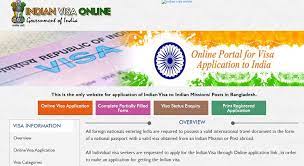Navigating the Digital Age: Essential Features of a Real Estate CRM
In the fast-paced world of real estate, staying ahead means leveraging the best tools to manage relationships, streamline processes, and close deals more efficiently. A Customer Relationship Management (CRM) system designed specifically for real estate professionals can be a game-changer. This article explores the essential features that a real estate CRM must possess to meet the unique demands of the industry, ensuring realtors can maximize their potential in managing leads, nurturing client relationships, and driving sales.
Comprehensive Contact Management
At the heart of any effective real estate CRM is comprehensive contact management. This feature goes beyond simple name and number storage; it should offer detailed profiles that include client preferences, past interactions, transaction history, and more. A robust CRM system enables real estate professionals to segment their contacts into various categories such as buyers, sellers, leads, and past clients, allowing for personalized communication strategies tailored to each group’s needs.
Moreover, an intuitive contact management system can track all communications with clients, including emails, calls, and meetings, ensuring no detail is missed. This level of detail enriches client interactions, making them feel valued and understood, which is crucial in building long-lasting relationships. The ability to quickly access and analyze this information enables realtors to make informed decisions, tailor their services, and ultimately, close deals faster.
Lead Management and Generation
A real estate CRM should streamline the entire lead management process, from generation to conversion. It must efficiently capture leads from various sources, including websites, social media, and traditional marketing channels, and then automatically import them into the CRM. This eliminates manual data entry, reducing the risk of errors and ensuring timely follow-up with potential clients.
In addition to managing incoming leads, a powerful CRM system should also support lead generation efforts. Features like integrated marketing tools, landing page builders, and email campaign management can help real estate professionals attract and capture more leads. Furthermore, integrating skip tracing for real estate capabilities can enable agents to identify and reach out to potential leads who may not be on the market yet, providing a competitive edge.
Activity and Task Management
Efficient activity and task management within a real estate CRM ensures that no opportunity slips through the cracks. The system should allow users to schedule and track all activities, from property showings and client meetings to follow-up calls and contract signings. Automated reminders and notifications are crucial to keeping realtors on top of their schedules, ensuring they never miss a beat.
This feature should also offer customization options, allowing agents to set up workflows that match their specific processes. By automating routine tasks, realtors can free up more time to focus on high-value activities, such as negotiating deals and building client relationships. Effective task management leads to increased productivity and a more organized approach to daily operations.
Mobile Accessibility
In real estate, mobility is key. Realtors are often on the move, and having access to their CRM from anywhere, at any time, is non-negotiable. A mobile-friendly CRM ensures that real estate professionals can access client information, update records, schedule appointments, and respond to leads promptly, all from their mobile devices.
The best real estate CRMs offer seamless mobile experiences, with apps or mobile-optimized web interfaces that provide full functionality. This level of accessibility not only enhances productivity but also allows realtors to provide immediate responses and updates to clients, improving client satisfaction and engagement.
Reporting and Analytics
Data-driven decision-making is pivotal in today’s competitive real estate landscape. A real estate CRM should offer comprehensive reporting and analytics tools that provide insights into sales performance, lead sources, conversion rates, and client engagement metrics. These insights enable real estate professionals to evaluate their strategies, identify areas for improvement, and make informed decisions to boost their business.
Customizable reports and dashboards should allow users to focus on the metrics that matter most to their business. By understanding trends and patterns, realtors can optimize their marketing efforts, focus on the most profitable lead sources, and refine their sales tactics to increase efficiency and effectiveness.
Integration Capabilities
In the digital age, real estate professionals use a plethora of tools and platforms to manage their business. A real estate CRM should seamlessly integrate with these tools, including email platforms, social media, property listing services, and more. This ensures a centralized hub for all real estate activities, reducing the need to switch between multiple applications and streamlining the workflow.
Integration with skip tracing for real estate tools can also be a valuable feature, enabling agents to enrich their contact database and uncover new opportunities within their existing network. This synergy between tools enhances the CRM’s functionality and allows real estate professionals to leverage their technology stack fully.
Automated Marketing Campaigns
In the realm of real estate, staying top of mind with clients and leads is crucial. An essential feature of a real estate CRM is the ability to automate marketing campaigns, ensuring consistent and personalized communication with your audience. Automated email drip campaigns, social media postings, and targeted advertising can keep your brand visible and engaging. This automation saves time and increases the effectiveness of marketing efforts by delivering the right message to the right person at the right time, nurturing leads through the sales funnel more effectively.
Personalization capabilities within these automated campaigns can significantly enhance response rates. By utilizing the detailed contact information stored in the CRM, real estate professionals can tailor their messages based on client interests, past interactions, and readiness to buy or sell. This level of customization strengthens relationships and can lead to higher conversion rates, making automated marketing an invaluable tool in a real estate professional’s arsenal.
Client Portal Integration
Providing a superior client experience is key to standing out in the competitive real estate market. An advanced feature of a real estate CRM is the integration of client portals, which offer a personalized space for clients to view property listings, track the progress of their transactions, and communicate directly with their agents. These portals enhance transparency and client engagement, fostering a sense of involvement and trust in the process.
Client portals can also streamline document management and approvals, making the transaction process smoother and more efficient for both clients and agents. By offering a centralized location for all transaction-related information and communication, client portals reduce confusion and ensure that everyone is on the same page, contributing to a more seamless and positive real estate experience.
Real-Time Collaboration Tools
Real estate transactions often involve multiple stakeholders, including agents, clients, mortgage brokers, and legal professionals. A CRM with real-time collaboration tools can facilitate efficient communication and coordination among all parties involved. Features such as shared calendars, document repositories, and messaging platforms within the CRM can enhance teamwork and streamline the transaction process.
These collaboration tools ensure that critical information is readily accessible and that updates are communicated promptly, reducing delays and misunderstandings. The ability to collaborate effectively within the CRM not only improves operational efficiency but also contributes to a more cohesive and professional service offering, enhancing the reputation of the real estate professional.
Customization and Scalability
Finally, the real estate industry is diverse, with different professionals having unique workflows, specialties, and client bases. A CRM that offers extensive customization and scalability is essential to meet these varied needs. The ability to tailor the CRM’s features, interfaces, and workflows to fit specific business models ensures that the software remains relevant and useful as the business grows and evolves.
Scalability is also crucial as real estate professionals expand their operations, enter new markets, or diversify their services. A CRM that can grow with the business, accommodating more users, listings, and data, without compromising performance, is invaluable. This flexibility ensures that the CRM remains a long-term asset, supporting the business’s development and success.
Conclusion
A real estate CRM is more than just a software solution; it’s a central component of a realtor’s success in the digital age. The essential features outlined—comprehensive contact management, lead management and generation, activity and task management, mobile accessibility, reporting and analytics, and integration capabilities—ensure that real estate professionals can manage their business efficiently and effectively.





